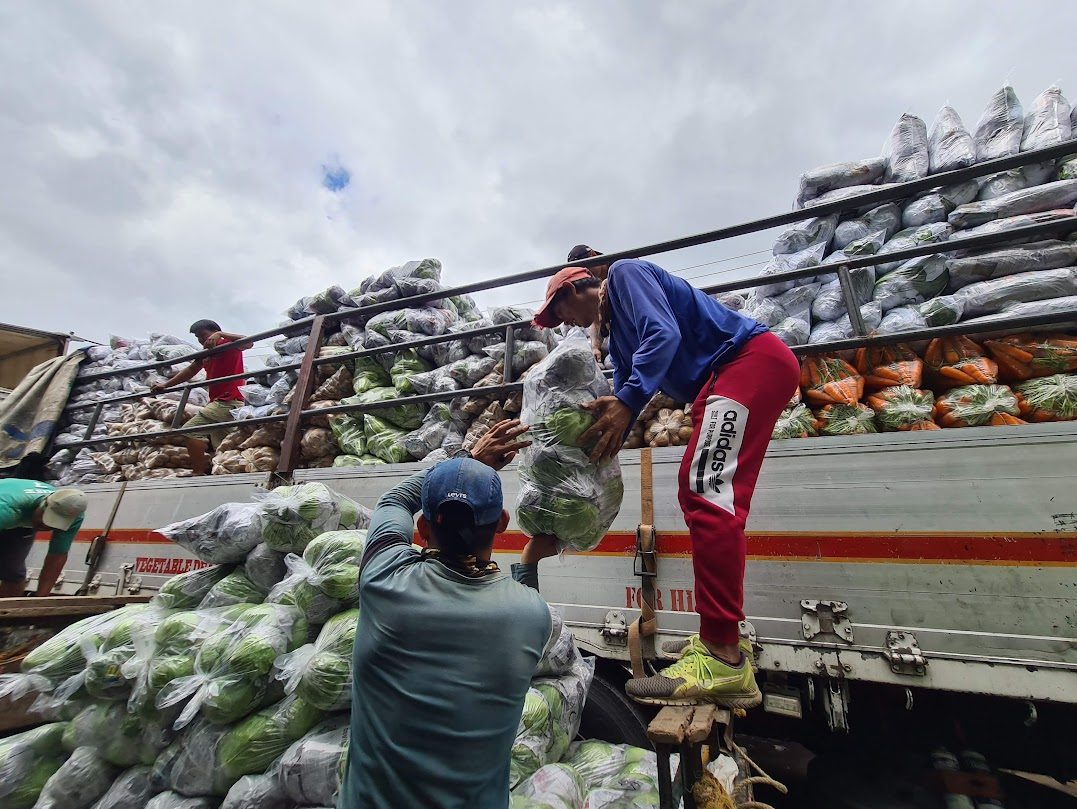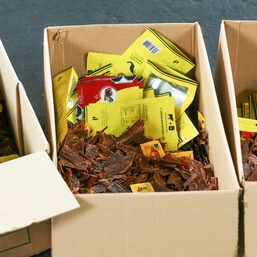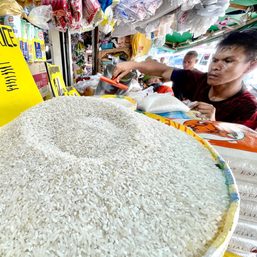SUMMARY
This is AI generated summarization, which may have errors. For context, always refer to the full article.

BAGUIO, Philippines –The Episcopal Church of the Philippines (ECP), also known as the Anglican Church, has come to the aid of vegetable farmers in the Cordillera, who have been struggling to recoup their expenses due to the reduced prices set by traders.
In an open letter dated January 8, ECP Prime Bishop Brent H.W. Alawas called on the public to participate in a church-led “rescue operation” that will allow the farmers to earn a little and bring their produce directly to the consumers.
“Currently, the prices of these vegetables average P2 to P3 per kilo but our Episcopal CARE Foundation will purchase at P12 to P15 at farmgate,” he said.
The church urged its members in Metro Manila to buy vegetables in solidarity with the farmers.
Aside from Metro Manila, the church will also bring the products to other diocesan centers in Luzon.
Trucks provided by the Department of Agriculture (DA) delivered four tons to its main office in Quezon City, along E. Rodriguez Avenue, on Tuesday night, January 8.
Another four tons went to its centers in Bontoc in Mountain Province, Tabuk City in Kalinga, and Santiago City in Isabela.
“We are hoping that our people and congregations will support this initiative so that we can do further rounds of operation and be able to help more farming communities,” Alawas said.
Meanwhile, the DA-Cordillera facilitated the sale of nine metric tons of cabbage on January 5 from the Benguet Agri Pinoy Trading Center (BAPTC) and La Trinidad Vegetable Trading Post.
Employees from different government agencies and walk-in clients bought the vegetables at P10 to P15 per kilo.
As of January 8, the DA-CAR monitored the following wholesale prices depending on size and variety at the BAPTC: cabbage at P10 to P15 a kilo, carrots at P3 to P15, and potato at P30 to P70.
Benguet-based League of Associations at La Trinidad Vegetable Trading Areas Incorporated (LTVTA) spokesperson Agot Balanoy told Rappler on Tuesday, January 9, that the prices have increased but remained below the cost of production.
Balanoy said the cost to produce a kilo of carrots is P24 to 28, and P15 to 18 for cabbage, blaming the high expenses on the steep rise in farm inputs and transportation costs, especially for farms that are far from the road, which entails additional hauling cost.
‘Manipulative system’
Alawas decried what he called a “manipulative system,” driving farmers into loss and poverty.
“We believe that our advocacy against manipulative trading becomes more effective by directing our concerted efforts towards direct marketing from farmers to consumers that bypass such a trading system,” he said.
The Cordillera region is the leading producer of carrots, potatoes, cabbage, and broccoli, which comprise 80% of the country’s total harvest. Benguet province produces 91% of the regional total based on the government’s 2022 data.
Stories of vegetable farmers donating their products or leaving their harvests on roadsides have gone viral on Facebook since December, mainly attributed to overproduction. However, smuggling has worsened the perennial issue of market saturation and price drop.
Balanoy said an average of 1.7 million kilograms of highland vegetables are traded daily.
Demand usually doubles during Christmas, starting December 20 and lasting until December 30. Farmers usually anticipate this peak in highland vegetable prices.
However, last year, the demand only increased by 30% to 40%. LTVTA noted that from December 20 to 30, an estimated P240 million worth of vegetables were left unsold, excluding those that farmers left on their farms to rot.
“If buyers’ turnover could be faster, any potential problems would be minimal… especially in the case of carrots, broccoli, cauliflower, onion leeks, celery, and potatoes. If there is an oversupply, the impact wouldn’t be as severe if not for smuggling,” Balanoy explained.
She said two clusters of buyers from the National Capital Region (NCR) informed them as early as September that they would no longer buy broccoli and cauliflower from LTVTA because of cheaper imported ones.
In a statement last December, LTVTA blamed the unabated smuggling for “killing the local vegetable/agriculture industry.” They urged the government to “urgently act,” noting that many depend on agriculture for their livelihood.
The group noted that boxes of carrots and potatoes marked with “ABC Baguio” were being sold in Manila, Sariaya, and other key markets. The group said these products were from China, some of which were seized by the Bureau of Customs in November in Olongapo, Zambales. – Rappler.com
Add a comment
How does this make you feel?



















There are no comments yet. Add your comment to start the conversation.